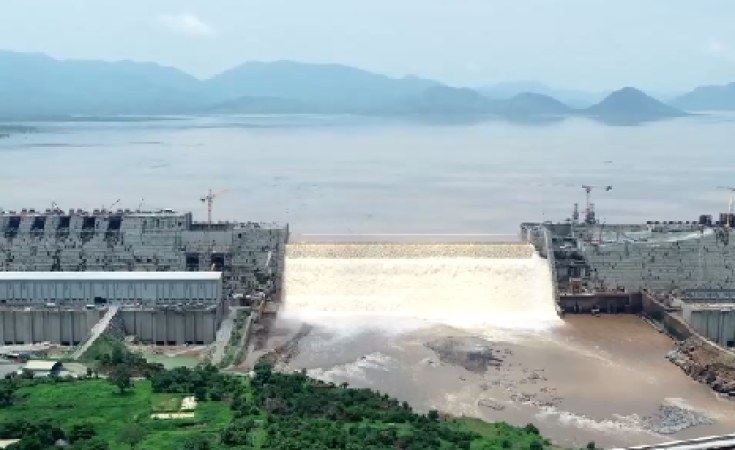Ethiopia / Sudan — The Grand Ethiopian Renaissance Dam (GERD) which Ethiopia says is now full, has been denounced by Sudanese commentators as 'a water bomb'. Concerned international experts predict dangerous consequences, ranging from political control to environmental damage.
Addis Ababa announced on Sunday that the fourth filling of the GERD is now complete' with transfer of water from the middle corridor of the dam. The announcement was met with a chorus of condemnation from both Sudan and Egypt, who have considered the dam a bone of diplomatic contention from the outset.
Dr Ahmed El Mufti, an international expert in water resources and a former member of Sudan's delegation to the GERD negotiations, told Radio Dabanga that the potential negative effects of the GERD on Sudan are limitless, and "the danger is these threats cannot be perceived presently".
El Mufti described the dam as a "water bomb", stressing that if the dam collapses completely or partially for technical or natural reasons, Sudan will be completely or partially submerged.
He continued: "The dam enables Ethiopia to control water for political purposes, because after the fourth filling, the total stock of the dam is about 36 billion cubic meters, and the capacity of its reservoir is 7.5 billion"
El Mufti stated that the 2015 Declaration of Principles of the GERD stipulates that Ethiopia is not obliged to pay compensation for any damage caused by the dam.
"Ethiopia has immunised itself, against any legal action taken against it, under Article 10 of the Declaration", he asserts, stressing that Ethiopia should have been subject to compulsory arbitration. "The binding agreement demanded by Sudan and Egypt does not address the damages, but only talks about filling and operating rules. Thus, irrigated agriculture from the Blue Nile would be at the mercy of Ethiopia."
'Dire consequences'
Journalist and political analyst, Taher El Mutasim, echoed El Mufti's criticisms. He told Radio Dabanga that the completion of the fourth filling of the GERD means that Ethiopia is continuing to complete its project without considering the dire consequences for neighbouring countries, especially Sudan.
He pointed out that "the Nile did not flood during the current season, at the end of August, and the quantities of running water decreased. This could impact electricity generation." He attributes Sudan's slow response to this current development to the current war.
Negotiations
A technical meeting is to be held in Addis Ababa this month. El Mutasim expects that the Sudanese Ministries of Foreign Affairs and Irrigation will offer a technical vision that can preserve Sudan's water rights and minimise potential threats.
El Mufti critiqued the upcoming negotiations, as they do not require the cessation of Ethiopia's activities until the completion of the negotiations: "There is no benefit for Sudan and Egypt from them, because they give legitimacy to all the unilateral action that Ethiopia has done and is doing."
Technical information indicates Sudan's acute vulnerability specifically throughout the filling process. Thus, throughout negotiations, Sudanese negotiators have continuously demanded that Ethiopia provide filling times and quantities for the GERD until the necessary precautions are taken.


